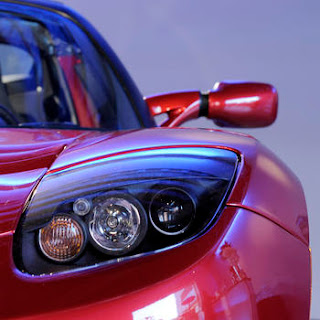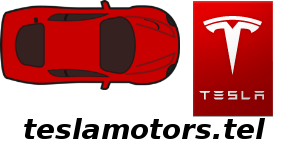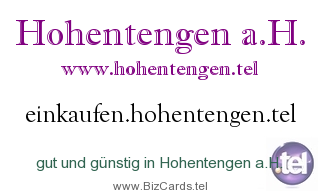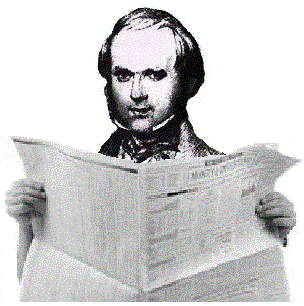If you would compare what the registry of the dot tel domain has done for its domain and community within the first year, and what other registries have done in their first year since the launch of their domain extension, than you might be able to conclude and see, that this is simply outstanding and extraordinary. And no other registry and community has made so much effort before, to develope and market its domain within the first year since launch.
I guess that marketing of a mobile domain, has to be done in a similar way a for example as it was done for the iPhone.
.Tel should look upon dot mobi (.mobi), as its brother, because, as far as I know, it is the only other mobile domain that exists. If you will, it is also early days for dot mobi. Wheras dot mobi offers nothing else, than its domain extension „.mobi“ (but which might be very fine, too), the dot tel domain does not only offer its domain extension „.tel“, but also a practical and useful interface, where you not need to have a website, or any hosting, which means, also, that you save money on webspace and the cost for hosting.
We got to learn from our "brother" (.mobi), about the good and the bad, about the pros and cons.
Despite all the negaive talk and the naysayers: Dot mobi is still there, alive, has a demand for it, and gets sometimes some very nice prices at auctions.
Furthermore: Same as with .tel, there are a lot of people who don't get, what .mobi is about, and why a registry had lauched it, and why it has a lot of companies that are backening it financially.
For many things, .mobi won't be able to be of much use, but in some other situations, it is the perfect solution.
Neither .mobi, nor .tel is probably the „one size fits all solution“. But it might fit, for you, or for him, or her. Just tell them about it, and why it might fit and suit them.
Personally, it think, you either have a love affaire with a name or/and extension, or you don't:
Some names with „.com“, or with „.mobi“ just look darn good. I am not sure, about if a name looks better, if it has „.tel“ instead of a country extension, etc., but it sure will feel darn good.
So that is where .tel will have to be good at: At providing a great feeling and experience.
As we all know: „.com“ stand for „commerce“, and „.mobi“ stands for „mobile device, or mobil phone“. But „.tel“?...: Can you go to your telephone, and use „.tel“? However, „.tel“ means „telecommunications“. But if there would be a person having no clue about the meaning of „.com“ he could think as well, that „.com“ meant „telecommunications“. Why not? Or should it be more like „.comm“ for „communications“? - Commerce, as well as communications start both with "com", and "com" could therefore also stand for (tele)communications, if it had not been promoted for the cause of (e-)commerce.
Anyway: „.tel“ might confuse some people with its extension, because they might not be able to figure out, for what „.tel“ is supposed to stand for.
It might be easier for them, if they get a chance to look at a .tel page.
You could even go so far, and say: Well, if you wan't to put it right, according to common sense, than „.mobi“ should look like the dot tel domain. Because „mobi“ stands for mobile and telecommunication.
Imagine, if „.tel“ had only its extension to offer, like „.mobi“...: People would have to develope a mobile version of their website, and change their „.com“ extension for a „.tel“ extension.
This might have even worked better than with the extension „.mobi“ (if .mobi was .tel, and .tel was .mobi).
- If the extension ".mobi" hadn't been already taken by a other registry, would of possibly Telnic chosen that extension for its interface, that was designed mainly for mobile purpose? Would that of made more sense, having the mobile and electronic business card named "company.mobi", instead of "company.tel"?
However, I think it is just important, that users know, for what „.mobi“ and „.tel“ stand for, and how they can be used in the most efficient way. So that it will then be up to them, to decide, if they could benefit from such a extension/domain, or not.
As we concluded: „.com“ or „.tel“ could quasi stand for anything (communications or telefon, etc.).
The strength of the „.mobi“ name might just be, that people are most likely to easily figure out, that the domain name with such a extension is for mobile devices. Maybe even soon, for smartbooks (smaller mini laptops, that are smaller than netbooks).
Why is „.tel“ not better named ".tele", or „.teleco“, or „.telecom“ (dot tele, or dot teleco, or dot telecom)? - Would there be less confusion? Is „.tel“ confusing?
„.Tel“ probably will mean nothing to the user, until he gets his hands on .tel, and realizes, how awsome this „.tel“ is.
With the registries themselfs, it is also a case fo "first com, first serve" (served by ICANN), because the extension ".com", as well as ".mobi" would of been perfect for the electronic business card that Telnic had launched a year ago. However, as soon as a extension is properly branded and marketed, it will work, no matter, if the extension makes sense, or not, for its cause and usage (see the dot com domain, after a period of twenty five years). Because ".com" could mean this, or that, or also that. Who thinks, every time he uses a ".com" that it means "commerce"? - The only thing they know, is that they can do business with that domain, and that it is not a non-profit website, like you can find under a domain name with the extension ".info", ".museum", etc.
.
So, what is the message?:
We got to get people to know, for what the domain name extension ".tel" stands for, and they might want to take a look at it. Otherwhise they might say: "Why bother and do "try and error", and possible waste some time? After all: Isn't it ".mobi", that is for mobile phones? Is there something else, as well?" - Tell the world...
.
But seriously, folks: The DotMobi registry and Telnic better make some sort of a deal..., becaus the one registry has the name, and the other one has great functions and features, and will have the looks (very soon).
It is not the first time, that two important companies have merged together, to be more successful, in hard economic times, and in a market with a lot of competition, etc. - All those mobile phone users, and the potential ones to come: We don't want to confuse them, but we want to give them something, that they can use, and that is easy to get and to use.
Merry Christmas!
Wellbit Mobile App – Live, Capture, Share, Savor
vor 3 Jahren











































































